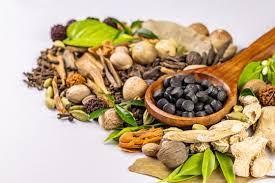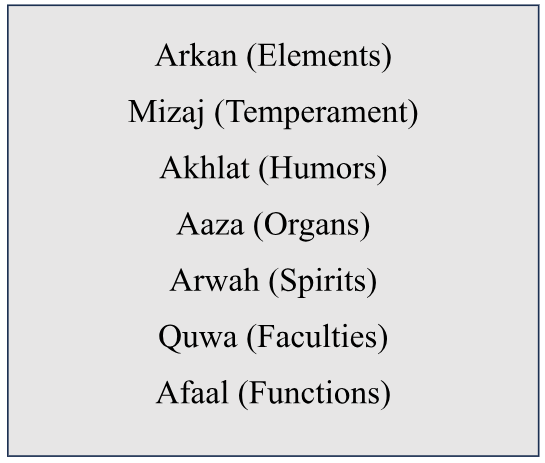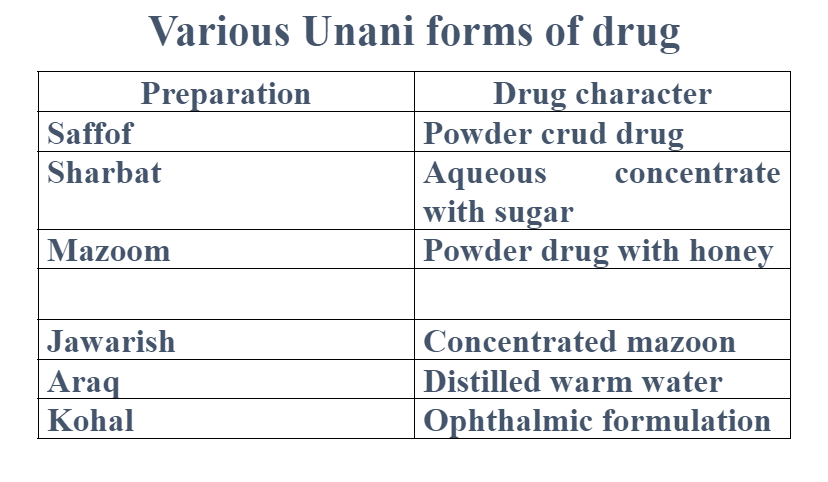
UNANI SYSTEM OF MEDICINE
Table of Contents
ToggleWhat is UNANI SYSTEM OF MEDICINE?
“It is the science in which we learn various states of body in health and when not in health and the means by which health is likely to be lost and when lost, is likely to be restored”
Development of USM
- The origins of Unani medicine are found in the doctrines of the ancient Greek physicians Hippocrates and Galen.
- As a field, it was later developed and refined through systematic experiment by the Arabs, most prominently by Muslim scholar-physician Avicenna.
- During the Caliphate (the political-religious Muslim state that began in 632 CE), the bulk of Greek knowledge was translated into Arabic.
- ….part of that knowledge being the principles of medicine. With additional contributions of medical wisdom from other parts of the Middle East and South Asia, Unani medicine came to be known also as Arabian, or Islamic, medicine.
- The system owes its present form to the Arabs who not only saved much of the Greek literature by rendering it into Arabic but also enriched the medicine of their day with their own contributions.
- Unani Medicines got enriched by imbibing what was best in the contemporary systems of traditional medicines in Egypt, Syria, Iraq, Persia, India, China and other Middle East countries.
- developed into an elaborate medical system in middle age era by Arabian and Persian physicians, such as Rhazes (al-Razi), Avicenna (Ibn-e- Sina), Al-Zahrawi, and Ibn Nafis.
- It originated in Greece almost 2500 years back, which is herbo- animo- mineral in origin (Approximately 90% herbal, 4-5% animal and 5-6% mineral). It is not only the original science of medicine but also a rich store house of principles and philosophies of medicine which can be of immense value to the medicine in particular and science in general.
- The Delhi Sultans (rulers) provided patronage to the scholars of Unani System and even enrolled some as state employees and court physicians. During 13th and 17th century A.D. Unani Medicine had its hey-day in India.
- The system suffered a severe setback during the British rule in India.
- It was mainly Sharifi family in Delhi, the Azizi family in Lucknow and the Nizam of Hyderabad due to whose efforts Unani Medicine survived during the British period.
- The Unani system of the Medicine, saw the beginning of its revival during the freedom struggle. Hakim Ajmal Khan, was a renowned physician and also one of the foremost freedom fighters in the country.
- He established an Ayurvedic and Unani Tibbia College and Hindustani Dawakhana a pharmaceutical company for manufacturing of Ayurvedic and Unani medicine in Delhi in 1916. Mahatma Gandhi inaugurated the college on February 13, 1921.
- After independence the Unani System along with other Indian systems of medicine received a fresh boost under the patronage of the National Government and its people. Government of India took several steps for the all-round development of this system.
- Today the Unani system of medicine with its recognized practitioners, hospitals and educational and research institutions, forms an integral part of the national health care delivery system.
- The Central Council for Research in Unani Medicine (CCRUM) is an autonomous organization under the Ministry of AYUSH, Government of India. Since its establishment in 1978, the CCRUM as the apex government organization for research in Unani Medicine has been engaged in conducting scientific research on the applied as well as fundamental aspects of Unani system of medicine
The four humors of Hippocratic medicine:
The four humors of Hippocratic medicine are
black bile (Greek: μέλαινα χολή, melaina chole)
yellow bile (Greek: ξανθη χολή, xanthe chole)
phlegm (Greek: φλέγμα, phlegma)
blood (Greek: αἷμα, haima)
- The blood was believed to be produced exclusively by the liver. It was associated with a sanguine nature (enthusiastic, active, and social) Excess of yellow bile was thought to produce aggression, and reciprocally excess anger to cause liver derangement and imbalances in the humors.
- The word “melancholy” derives from Greek μέλαινα χολή (melaina khole) meaning ‘black bile’. Depression was attributed to excess or unnatural black bile secreted by the spleen.
- Phlegm was thought to be associated with apathetic behavior, as preserved in the word “phlegmatic”.
- The basic theory of Unani system is based upon the well known four- humour theory of Hippocrates. This presupposes the presence, in the body, of four humours viz., blood, phlegm, yellow bile and black bile.
Al-Umoor al-tabiyah: basic physiological principles
- the health of the human body is maintained by the harmonious arrangement of al-umoor al-tabiyah, the seven basic physiological principles of the Unani doctrine.
- Interacting with each other, these seven natural components maintain the balance in the natural constitution of the human body.
- Each individual’s constitution has a self- regulating capacity or power, called tabiyat (or mudabbina-e-badan; vis medicatrix naturge in Latin), or to keep the seven components in equilibrium.

Arkan and mizaj: elements and temperament
- As four simple, indivisible entities-arz (earth), maa (water), nar (fire), and hawa (air)- Arkan not only constitutes the primary components of the human body but also makes up all other creations in the universe.
- There are predictable consequences to the actions and interactions (imtizaj) of the four arkan.
- As these elements act upon and react with each other, they continually undergo change into various states of “genesis and lysis” (generation and deterioration), due to ulfat-e- keemiyah (acceptance of a medicine by the body) and nafarat-e-keemiyah (rejection of a medicine).
- Skilled hakims claim that they can perceive, recognize, and observe such states.
- The four essential mizaj (temperaments) are hot, cold, moist, and dry.
- Four more are compounded of those single temperaments-namely, hot and dry, hot and moist, cold and dry, and cold and moist.
- Possessed in different proportion, mizaj is balanced by all entities in the cosmos, including all plants, minerals, and animals. The equilibrium of the individual’s elemental combination and resulting mizaj, as determined by tabiyat, provides a stable constitution to that individual-in other words, health.
- Therefore, mizaj plays a pivotal role in Unani in characterizing a person’s normal state (physical, mental, and social), as well as the nature of a disease.

- Hippocrates propounded the doctrine of fluids, or humours, of the body, and he categorized the humours into four groups based on their colour. These groups were refined by Galen and later by Avicenna.
- They appear in Unani practice as dam (blood), balgham (phlegm), safra (yellow bile), and sauda (black bile).
- The human dispositions corresponding to these humours are, respectively, sanguine, phlegmatic, choleric, and melancholic. Each person is considered to have a specific humoral makeup, determined by the predominance of a given humour in his or her constitution. The quality and quantity of the humours in an individual a person’s unique, proper, and proportionate humoral makeup-is said to guarantee health.
- Conditions other than this balance signal ailment or disease.
- The theory of humours (nazaria-e-akhlat), which is the essence of the practice of Unani medicine, holds that the four humours are derived from and utilized in the digestive process.
- Their continuous action and reaction results in the breakdown of complex macromolecules into simpler molecules, which are then incorporated throughout the body in the form of fluid. These humours, the akhlat, suffuse the body’s cells, interstitial spaces, and vascular channels, affecting physical and behavioral well-being, and are most stable in a healthy individual.
Aaza (Organs)
These are the various organs of the human body. The health or disease of each individual organ affects the state of health of the whole body.
Arwah (Spirits)
Ruh (Spirit) is a gaseous substance, obtained from the inspired air, it helps in all the metabolic activities of the body. It burns the akhlat latifah to produce all kinds of quwa (powers) and hararat ghariziyah, it is the source of vitality for all the organs of the body. These are considered to be the life force and are, therefore, important in the diagnosis and treatment of disease. These are the carriers of different powers, which make the whole body system and its parts functional.
Quwa (Faculties)
These are of three kinds:
Quwa Tabiyah (Natural power)
Quwa Nafsaniyah (Psychic power)
Quwa Haywaniyah (Vital power)
- Quwa Tabiyah or Natural power is the power of metabolism and reproduction. Liver is the seat of this power and the process is carried on in every tissue of the body. Metabolism is concerned with the processes of nutrition and growth of human body. Nutrition comes from the food and is carried to all parts of the body, while growth power is responsible for the construction and growth of human organism.
- Quwa Nafsaniyah or Psychic power refers to nervous and psychic power. It is located inside the brain and is responsible for perceptive and motive power. Perceptive power conveys impressions or sensation and motive power brings about movements as a response to sensation.
- Quwa Haywaniyah or Vital power is responsible for maintaining life and enables all the organs to accept the effect of psychic power. This power is located in the heart. It keeps life running in the tissues.
Afaal (Functions)
- This component refers to the movements and functions of all the organs of the body. In case of a healthy body the various organs are not only in proper shape but are also performing their respective functions.
- This makes it necessary to have full knowledge of the functions of the human body in full detail.
Prevention of disease is as much a concern of the system as curing of sickness. Right in its formative stages the influence of the surrounding environment and ecological condition on the state of health of human beings has been recognized. There is emphasis on the need for keeping water, food and air free from pollution. Six essentials pre- requisites (Asbab Sitta e Zaroriayah) have been laid down for the promotion of health and prevention of disease. These are:
- Air(Hawa)
- Food and drinks(Makool wo Mashroob)
- Bodily movement and repose(Harkat-wo-sakoon-e-jismiah)
- Psychic movement and repose(Harkat-o-sakoon nafsaniah)
- Sleep and wakefulness(Naum-o-yaqzah)
- Evacuation and retention(Ihtebas and istifragh)
Diagnosis
The Diagnostic process in Unani system is dependent on observation and physical examination.
Any illness of a person is to be regarded as a product of:
The stuff and material he is made of;
- The kind of temperament, structure and strength of faculties he has;
- The type of factors operating on him from outside; and
- Natures own attempt to maintain his physical functions and to ward off disruptions to the extent possible.
- Keeping all inter-related factors in view, the cause and nature of illness is determined and treatment is chalked out. Diagnosis involves investigating the causes of disease thoroughly and in detail. For this, the physicians depend mainly on Pulse (Nabz) reading and examination of urine and stool.
- Besides the means of pulse reading and physical examination of urine and stool, other conventional means such as inspection, palpitation, percussion and occultation are also used for diagnosis purposes.
Dieto therapy (Ilaj-bil-Ghiza)
- In Unani treatment, food plays a key role. By regulating the quality and quantity of food several ailments are treated successfully.
- Certain foods are considered as laxative, diuretic and diaphoretic.
Pharmacotherapy (Ilaj-bil-Dawa)
- This type of treatment involves the use of naturally occurring drugs, mostly herbal.
- Drugs of animals and mineral origin are also used. Natural drugs only are used because they are locally available and have no or less after effects on the body.
- Unani medicine presupposes that the drugs also have their own temperament. Since in this system, emphasis is laid on the particular temperament of the individual, the medicines, administered are such as go well with the temperament of the patient, thus accelerating the process of recovery and also eliminating the risk of reaction.
- Drugs are supposed to act by their temperament of being hot, cold, moist and dry. As a matter of fact, drugs are classified into four classes according to their temperament and the physicians consider its potency, age and temperament of the patient, nature and severity of diseases.
- Drugs are used in the form of powders, decoctions, infusion, Jawarish, Majoon, Khamira, Syrup and tablets etc. The system has set rules for prescribing alternative drugs.
Surgery (Ilaj-bil-Yad)
This therapy is of very limited use, although the Unani system is credited to be pioneer in this field and having developed its own instruments and techniques. At present only minor surgery is in use in the system.

